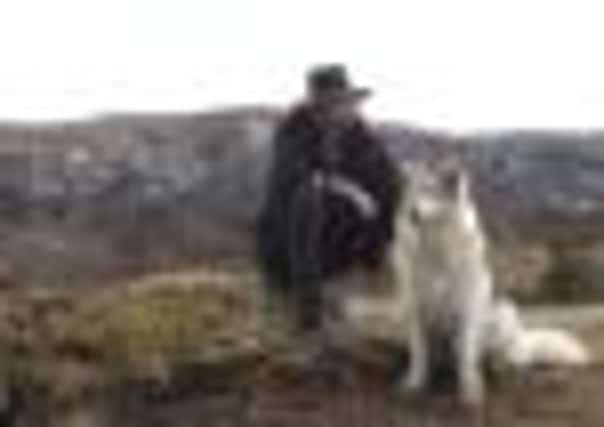Obituary: George Ross Watt, blues singer and guitarist


‘BIG GEORGE” Watt was a formidable singer and guitarist who matter-of-factly related his affinity for the blues with his working-class Clydeside background. As the leader of the band Big George and the Business, he took their gritty, Glaswegian take on the blues and beyond to stages across Europe and North America.
Watt, who was found dead on Tuesday, was a larger than life figure – once described as “Billy Connolly meets Jimi Hendrix” – who combined onstage Glaswegian patter with a bluesman’s growl and incendiary guitar technique, which enabled him to share stages with such legendary names as Buddy Guy, John Campbell, Bo Diddley and ex-Rolling Stone Mick Taylor.
Advertisement
Hide AdAdvertisement
Hide AdGeorge Ross Watt was born in Glasgow in 1958, growing up in Yoker and Scotstoun, communities, then still largely founded on shipbuilding and heavy engineering. It was a tough, hard-working environment, recalled Tam McLucas, who lived across the street from Watt and became bassist and manager of Big George and the Business, and it informed Watt’s identification with the blues.
“It was a poor background, which was where the blues came from in America,” said McLucas. “George would often say that, and that it gave you a great lust for life.”
A lust for music came with it. Inspired by the rock guitar sounds of Hendrix, Rory Gallagher and Free’s Paul Kossoff, Watt played in his first band, Backwater, while still at Victoria Drive Secondary School, then went on to play with bands such as the Glasgow Blues Legends and Rollin’ Joe and the Jets.
After leaving school in 1975, he worked in a bank and in the Post Office, but the music won out. He honed his performance skills in the rough and ready school of Glasgow’s pubs such as the Halt and the Burns Howff, and in the early 1980s joined up with guitarist and singer James Dewar, who had established his reputation with Stone the Crows and had newly left the Robin Trower Band.
They played under the name Adults Only until Dewar’s health problems forced him to retire. Watt tried various group formats, eventually settling on the trio of himself, McLucas on bass guitar and Greg Orr on drums which became the core of Big George and the Business, soon winning acclaim for their raw brand of rock and blues.
His parents and aunt Betty were his most devoted fans, with his father bankrolling the Business’s debut recording, The Alleged Album. The follow-up All Fools’ Day consolidated their reputation, and by the early Nineties they were touring in Europe, Scandinavia and North America, notably appearing at the Montreal Blues Festival.
It was in Montreal that they recorded half of their subsequent album Home of the Wolf.In more recent years, apart from touring, Watt produced up-and-coming bands in his studio and taught guitar in his local community. He also wrote and performed music for television, with the band making an appearance in Peter MacDougall’s TV play Down Among the Big Boys, which gave a starring role to Billy Connolly.
“George’s guitar style had a bit of Jimi Hendrix, Stevie Ray Vaughan and even a touch of Ritchie Blackmore,” said McLucas. “It was very fiery. We used to jokingly call it ‘napalm blues’, even though we did play a lot mellower stuff as well.”
Advertisement
Hide AdAdvertisement
Hide AdWatt was an acknowledged party animal. “He could be a wild man at times,” said McLucas. “But he was a gentleman – a very genuine and very kind man.”
The band’s long-term roadie, Richard Devlin, remembered Watt as “warm, witty and charming. He always had time for fans at gigs. He was also well-read, with a keen interest in all sorts of music and art.”
John Bruce, guitarist with another leading Scots blues band, Blues ’n’ Trouble, played with Watt on various occasions and described him as “hugely charismatic on and off stage.
“As a musician he had exceptional feel and skill, unbelievable dynamics. He also had a fantastic voice ”
Big George and the Business was put on hold after Watt suffered two minor strokes in 2008. He had been hoping to return to fitness and touring when, in January of this year he was rescued by a neighbour from a fire at his flat in Glasgow’s Knightswood area, but sustained severe burns. He was living in temporary accommodation nearby when he was found dead on Tuesday morning.
He is survived by his wife, Carolynn and his daughter Natasha.